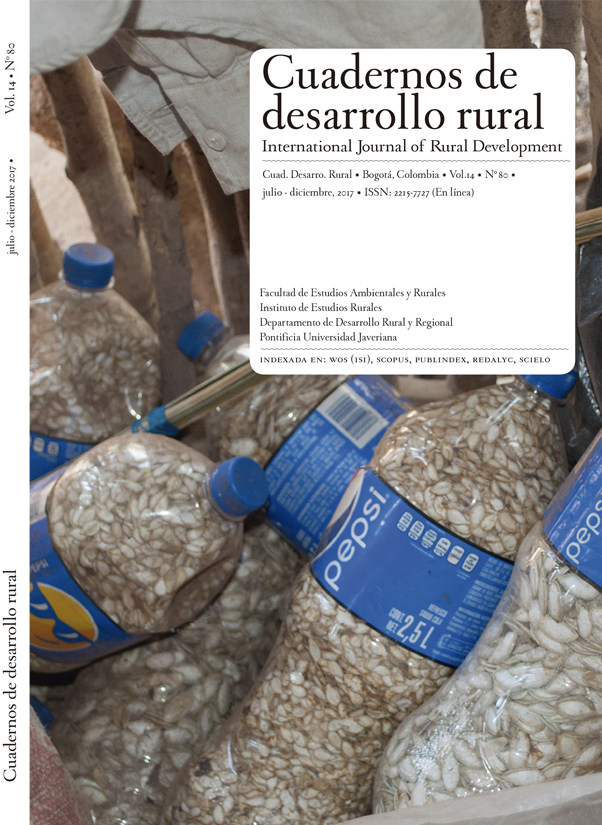Abstract
This research work focuses on the study of the relationship between the abandonment of the milpa, the subsistence system developed around corn as a basic crop in Mesoamerica, with the supply of industrialized foods. Thus, we analyze what factors are responsible for the inclusion of this type of food into the diet of the Mayan rural households of Yucatan, Mexico. By means of a two-way variance analysis, the proportion
of industrialized foods consumed by peasant households that produced milpa was compared with those that no longer implemented it in communities with different industrialized food offerings. It was found that, compared with the households that no longer cultivated milpa, the milpa-producing communities consumed a smaller proportion of industrialized foods, regardless of the offer in their community of residence.
Cuadernos de Desarrollo Ruralis registered under a Creative Commons Attribution 4.0 International Public License. Thus, this work may be reproduced, distributed, and publicly shared in digital format, as long as the names of the authors and Pontificia Universidad Javeriana are acknowledged. Others are allowed to quote, adapt, transform, auto-archive, republish, and create based on this material, for any purpose (even commercial ones), provided the authorship is duly acknowledged, a link to the original work is provided, and it is specified if changes have been made. Pontificia Universidad Javeriana does not hold the rights of published works and the authors are solely responsible for the contents of their works; they keep the moral, intellectual, privacy, and publicity rights.
Approving the intervention of the work (review, copy-editing, translation, layout) and the following outreach, are granted through an use license and not through an assignment of rights. This means the journal and Pontificia Universidad Javeriana cannot be held responsible for any ethical malpractice by the authors. As a consequence of the protection granted by the use license, the journal is not required to publish recantations or modify information already published, unless the errata stems from the editorial management process. Publishing contents in this journal does not generate royalties for contributors.



